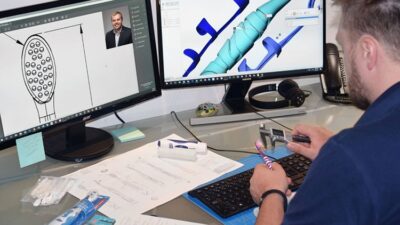Acne is a common skin condition that can affect anyone. It occurs when the pores in your skin become clogged with oil and dead skin cells, causing pimples or whiteheads. There are several types of acne that range from mild to severe. You may want to consider acne treatment if you have moderate to severe acne.
The best way to prevent and treat acne is by practicing good hygiene, avoiding irritating skin products and following a regular skincare routine. If you still have acne after trying these methods, see your dermatologist for more treatment options.
Things to know about acne treatment:
- The right treatment for your skin can help clear up your acne and keep it from coming back.
- Treatment can take weeks or months, depending on the type of acne you have and how severe it is.
Acne is one of the most common skin conditions that affects millions of people. The severity of your acne can vary, but it’s important to treat it as soon as possible to avoid scarring and other complications. If you’re looking for an acne treatment, there are many different options available.
Table of Contents
What causes acne?
Acne is caused by a combination of genetics, hormones and skin oil clogging your pores. When this happens, bacteria grow rapidly inside your pores and cause them to swell up and become inflamed. This causes whiteheads, blackheads and pimples.
What are the different types of acne treatments?
There are several different types of acne treatments available on the market today:
Prescription pills — These include Accutane (Isotretinoin) and Spironolactone (Aldactone). They work by reducing the amount of oil produced by your body and preventing overgrowth of bacteria within your pores. However, these medications come with serious side effects that can be very dangerous if not taken correctly or over time so they should only be used in extreme cases where other treatments have failed or where there is a high risk of developing scarring if left untreated.
The most common type of acne, known as acne vulgaris, often begins during puberty when the skin and oil glands are going through many changes. It affects an estimated 85 percent of teenagers, and continues to affect up to 40 percent of young adults.
Acne is not a sign of poor hygiene, but rather a problem with the way your body produces and sheds old skin cells. Acne can be mild or severe, but it’s important to know that there are many things you can do to help control it.
Benzoyl peroxide lotion or gel. This medicine kills acne bacteria and helps dry up pimples and helps prevent blackheads and whiteheads from forming.
Retinoids (isotretinoin). These medications help prevent new pimples from forming and unblock pores that are already clogged with oil and dead skin cells. They also help clear blackheads, whiteheads and other types of acne blemishes.
Antibiotics (topical or oral). These drugs kill bacteria in the skin that causes acne blemishes to develop. They work best when combined with benzoyl peroxide lotion or gel. You can contact https://innovations25.co.uk/ for more information.
Learn more about different types of skin problems along with their cure and medications, on this website: www.4thecure.com
















Comments